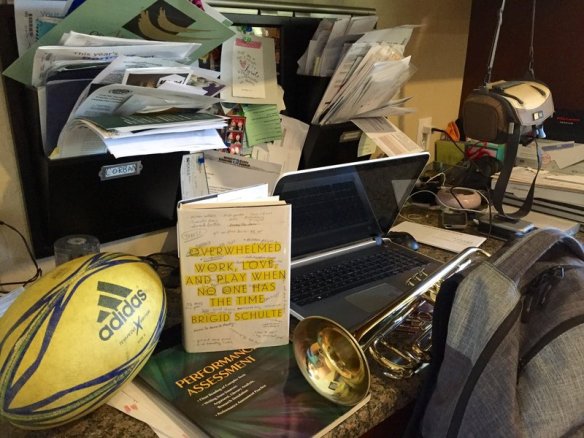I received a rejection slip! Of course I’m disappointed, but here’s the catch: all creative ventures involve risk. I took a risk. It didn’t pan out the way I’d hoped, but I took it nonetheless. I am creating, and putting my work out there, and it’s a step in the right direction. This post just didn’t meet their needs at this time, which also means I get to post it here instead. Create, and recreate, and all good. What are you creating, and how’s it going?
Overwhelmed
Bristling like an electrical storm, Teen blustered into the house—door slamming behind him—and tossed his gangly body onto the couch beside his dad. “Hey, did you know the wage gap is a myth? That women get paid less than men for the same work is just not a thing!”
We stared in response, so he kept spouting facts he’d heard in a video on social media. He thrust his phone in his dad’s face, insisting he watch it, too.
Parents want their kids to think critically. At eighteen years old and soon off to college, it is good for him to take account of the world and wrestle with his place in it. But a two-minute video by some guy not much older than he is cannot be his only information source.
I left the room, returning armed with a book—Overwhelmed: Work, Love and Play When No One Has the Time, by Brigid Schulte (2014: Sarah Crichton Books, Farrar Straus and Giroux, New York). Earlier that afternoon I had finished the section on Work.
Schulte offers solid reporting and not by any definition a feminist manifesto. Yet as I read one story after another, I felt affirmed and discouraged that sexism—in the workplace as one societal microcosm—still runs rampant. My kid may be right, that women and men with comparable education, experience and skills receive comparable pay for comparable work. But nothing is ever that simple.
For example, researchers at Cornell University put together four nearly identical resumes: half with male names and half with female; half signaling parenthood through PTA involvement and half indicating childlessness through charitable volunteerism. Nearly 200 college students ranked fathers as “best worker,” more employable and promotable and better management training candidates than men without children, while mothers ranked at bottom, considered significantly less competent, intelligent and committed than women without children (79). To test this “motherhood penalty” and “fatherhood bonus,” they confirmed their research by submitting resumes to entry and mid-level positions and found that fathers were called back at a higher rate than nonfathers, while mothers received half the offers of nonmothers (80).
As I tried to explain ‘my side’ to my ever-argumentative child (oh, the responsibility of speaking on behalf of the women he will encounter in life, begging him to trade grace for an arrogant hard line), he asked, “But Mom, when have women had it better?”
To which I replied, “Maybe they haven’t. But, Son, look at me. I’m damned if I do and damned if I don’t.”
Over a post-yoga iced tea with a girlfriend, I relayed this story. She gave up her hard-earned career to be a full-time stay-at-home mom who employs her work skills as PTA president. I have cobbled together full-time motherhood with part-time employment plus freelance writing. We each have made choices that feel sacrificial. Even at our best, we both feel we will never be able to do it all well.
Schulte defines overwhelm as “a product of lack of control and unpredictability and the anxiety that both produce” (280). Who can calculate how many factors in a women’s life fall into “lack of control and unpredictability”? On any given day, I can only control so much: what time I get out of bed; how I fuel and move my body; the ways in which I interact with others; the work or home projects I tackle before the interruptions come. Because the interruptions come, hard and fast, predictably unpredictable: sick kids; forgotten lunches, forms, homework; overlooked deadlines, and immediately-required answers; bad news, local and global, or worse, from loved ones.
No wonder we feel overwhelmed! So how to squelch the rampant anxiety? Schulte includes pages of suggestions in the “Do One Thing” appendix—working smarter, not harder; time chunking; practicing gratitude; remembering that play, too, can be useful. For those too overwhelmed to read a book on feeling overwhelmed, this appendix alone is worth perusing.
Thankfully, my friend and I have found our way to a straight path. Exercise and togetherness. Swapping stories and encouragement. Expressing gratitude that, though we may not do it all as well as if we only did some, we have opportunities that others have not. Cherishing the truly precious moments in the mess of parenting (that an eighteen-year-old wants to spend an evening discussing real-life issues with his parents is not to be taken lightly!).
And taking time to read good books.


Oh to be young and know everything again. Hah! I feel this struggle daily, trying to find the best balance for me and for my family – a journey which has covered all the bases from full-time career to full-time-stay-at-home-momma, and everything in between. There is no “perfect” although the standard does feel held up more often than not. Thanks for sharing your resources, your experience.